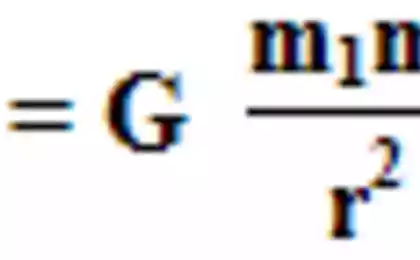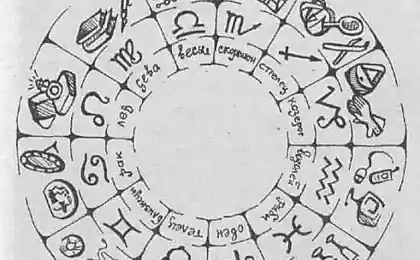567
The power of perseverance: who is epileptoid
Thirty three million four hundred ninety two thousand five hundred sixty one
© Jeff Koons
The human characters are very diverse, but among them nevertheless, you can select typical pictures. To describe some similar patterns in psychology there is the concept of "accentuation" — so called the amount is most clearly delineated of the properties of nature that are outside of clinical norms, but make a person vulnerable to psychological stress of a particular type. Epileptic accentuation is one of her options. What distinguishes epileptoid from the epileptic, what are the pros and cons of this type and what to do if you have a character?
Existing practice: what is accentuation
Accentuation of character is not a disease. Despite the fact that some names are variants of accentuation: epileptoid isteroid, schizoid, and others, formed from the names of mental illnesses, anyone with accentuation healthy and normal. Have epileptoid no epilepsy, schizoid does not suffer from schizophrenia (otherwise they would become epileptic and schizophrenic). People with only acute accentuation of certain traits. The Creator of this concept, the German psychiatrist Carl Leonhard, for example, wrote that "the population of Berlin is 50% accentuated personality and 50% standard types of people". However, in some adverse circumstances accentuation can turn into a disease, the "reach" of patholo-gical.
The compilers of the Encyclopedic dictionary of psychology and pedagogy (2013) writes about this concept: "Accentuation of character are distinguished from psychopathy by the lack of simultaneous manifestations characteristic of the last of a triad of characteristics: stability over time of the totality of its manifestations in all situations, social maladjustment". In other words, epileptoid not always strives maniacally to maintain order, and isteroid not in any situation craves to be the center of attention.
In Russian psychology accentuation of character remains a popular concept, but the generally accepted classification of today does not exist. The modern version of a typology based on the work of Karl Leonhard, a monograph of the Soviet psychiatrist Andrew Licko and other studies. Works Lika enabled a deeper understanding of the causes and etiology of neuroses, as a psychiatrist put forward the concept of so-called "place of least resistance" or the "weak link" in the character.
"The introduction of the concept of "place of least resistance" character and description of these places in relation to each type is an important contribution to psychological theory of the nature, — writes in his monograph the Russian psychologist, specialist in the field of experimental psychology and neuro-linguistic programming, Moscow state University Professor Julia simultaneously. — It is also of invaluable practical importance. Weaknesses of each personality needs to know in order to avoid wrong steps, unnecessary stress and complications in the family and at work, in the raising of children, the organization of private life, etc.»
Viscous pedantry: what is similar and different epileptoid and epileptic
Epilepsy is a mental illness whose main characteristic is a recurrent sudden seizures, preventing the brain from working correctly. They are based on the excessive electrical activity of neurons. Because of her brain there is a category that beats and beats like lightning, in its tissues: once a year or weekly, nightly, or every few hours. While the fit may not look just like cramps, but like a sudden fading — the so-called absence seizure with short blackouts (epilepsy, petit mal), immediate muscle spasms in the arms (myoclonic epilepsy), or even sleepwalking and twitching of the muscles of the face and body during sleep (nocturnal frontal lobe epilepsy).
According to the world health organization in the world today, about 50 million people suffer from this disease. In 70% of cases epilepsy can be cured, most often — a medical. However, three-quarters of people, even in developed countries do not receive treatment because they do not seek help. This is partly due to the fact that fame is only the convulsive form of epileptic seizure, but the other forms don't seem people cause for alarm. However, without treatment epilepsy destroys the brain and eventually leads to dementia.
Epilepsy affects how the psyche works. As a result, a change of identity: the person becomes more "viscous" pathologically thorough, are unable to switch, irritable, prone to outbursts and teachings, emphasized the pedantic, overly affectionate and extremely self-centered.
Reliable and irritation: the pros and cons of epileptic accentuation
Similar features are characteristic of healthy people with epileptic character accentuation were — certainly not in such a vivid form. Thus such a person will not necessarily develop epilepsy or have hurt her in the past. Accentuation is only a set of personal traits, tendencies and characteristics. To treat them differently, depending on how they hinder or help to the person and people around, but the "cure" accentuation is also pointless, how to treat low growth. You can only correct the symptoms, if they become a problem.
Epileptic accentuation (like all others) can really cause some difficulties. Experiencing epileptic seizures, and epileptic — rages. Like epileptic seizures, they can all be visible or invisible. Shades of aggression varies individually and situationally: from the silent flash of irritation to full-fledged rage, when a person can accidentally break the thick glass in the car with his bare hand. "I'm just very angry" — he will say then. And it will be the truth: people with epileptic accentuation by able angry as anyone.
Anger, irritation, rage, anger, resentment, indignation, rage, resentment, bitterness — they are frequent and annoying companions. Epileptoid angry subway angry driving, angry at home, angry at yourself, others, circumstances. This feature of nature is fraught with strokes and heart attacks — even if you have a blast there is almost no external manifestations (like a fit of epilepsy petit mal), it is still happening.
As a result, people with epileptic with accentuation over and over again is in threat system: the aggressive impulse — delay, aggressive impulse — again delay... Epileptoid "restrained, but explosive", "explosive but restrained". To cope with this struggle every day, and people say that it's exhausting. However, to reduce aggressiveness in this case may be due to work — in the form of autotreninga or sessions with a psychologist. Also polesden is a full or partial transition to a vegetarian diet and the "anti-stress" East Hobbies: yoga, Zen and others.
People with the accentuation epileptic, and epileptics, is characteristic of "viscosity" and "affectionate" nature. It is difficult to escape, it is difficult to switch, it is difficult to see an alternative or to accept criticism. Once penetrated and rooted in the simple and sound logic epileptoid the idea of "not thinking", are compelled to return again and again, cluttered with additions and additives, while maintaining the inviolability of the monument. Epileptic accentuation allows you to believe until it stops working on the idea when all else has stopped doing, consistently achieving your due to extreme tenacity, pedantic, overbearing and patience. "Drop wears away the stone not by force but by falling often" — it's about epileptoid. He always step back and reaches her, so if it's "their" vtemyashilos him in the head. That's why epileptic accentuation can be useful for career and self-development. For epileptoid, however, it is important to try to choose what is "bogged down" and to get emotionally attached. Hopeless objects is fraught with a waste of time — but if the idea is good, it can lead to the main highway to which the man himself you dig your way through the rock, and will then rightfully be proud of.
Epileptic people, like people with paranoid accentuation prone to "overvalued ideas". Psychologists say that if a paranoid — "a prophet," that epileptoid — "the Apostle". This accentuation of character allows a person to be a trusted colleague, a loyal friend and devoted partner in relations. Epileptoid always remember who and what should be, who and what need to thank. At the same time, in the memory of such a person stored information, and to whom he did good. Based on my own habit of "gave back", he could expect that he would answer the same, and get upset when this happens.
Pie on the line: how to know epileptoid
One of the leading hallmarks of the human epileptic with an accentuation of his love in order, and orderliness. His house usually looks very tidy and pretty clean. It's "his castle" into which few are allowed. There are many things and phenomena have their place, be it a teaspoon, the edge of the carpet or sequence prigovleniya Breakfast.
Epileptoid willingly tidying up (often unknowingly) in public areas: shifts the napkin holder to smoothly stood, wiping a drop of soup, if slightly soiled table at lunch, and might even complain that "the cake is uneven." Clutter irritates these people and their ultimatively and propensity for aggression adds fuel to the fire, so visit the cluttered home can cause an attack of anger or depression. At best, he will be experienced in silence, but to avoid it will not work unless the person specifically does not work with your negative emotions.
The person is epileptic as well and can seem quite strict: it is easy to give the command, and his logic is sober, clear and based on common sense. His tendency to control often manifests itself in the sexual sphere. At the same time, due to the irritability of his mind epileptoid remains quite vulnerable: the hardness had enough, but calm — no.
Against attack: if you epileptoid
One of the most important skills that allows a person with epileptic with accentuation to improve your life, is the ability "to stop" bouts of anger. Such a goal often requires hard work, but to engage them not only with a specialist. "Learn to relax and keep the inner smile, suggest psychologists. — Nurture a greater tolerance of other people, even those who live very differently".
Also the representative of the epileptic type, it is important to remember that "not man for the order, and the order is for man," and you can forgive a colleague, friend or loved chaos on the table, unwashed dishes in the sink or a few shreds of dust under the bed. The procedure is an important element of life, but not everyone pays attention to it. Everyone is different, and each has its advantages and disadvantages.
Selfishness and attention to themselves is a big problem for many epileptoidov. That's why it is important to learn to understand other people, their feelings and opinions. You can use the auto-trainings: for example, "I am the eyes of others", "Reincarnation" and others. It is also important to regularly arrange days (or even hours) when you voluntarily live according to the rules and desires of loved ones, not your own rules.
Rome: if there epileptoid
For people with epileptic the accentuation of the importance of the respect for established norms and their personal rules. That is why it is important to ask about their preferences. Such people will appreciate it, and the degree of peacefulness increase. Also in the case of epileptic accentuation of the need to consider the status, age, merit, subordination and other public hierarchical elements. Epileptoid unable to yell at the boss, but unauthorized, "you" from a fellow traveler on a train may cause him ill-concealed irritation.
It should be remembered that communication with epileptoid there are many positive sides. In addition to anger, and pedantry, which can be corrected, if the person is engaged, such people tend to decency and orderliness, reliability, self-discipline, clear thinking and loyalty. Probably for them it is possible to forgive the habit to straighten the tablecloth, or from time to time get irritated if you do not answer the call.
Vladimir Levi, psychologist, psychotherapist and writer, candidate of medical science:
— Single, universally accepted formal classification of accentuations of character I do not recognize, as I am sure that such can not be. Because there is such a thing as psychological relativity. There can be no single, absolute, common to all times, to all civilizations, countries, nationalities, and social strata the idea that this is not the accentuation — that is, the nature of "average", "normal", "right", or some "harmonious" or "perfect". We can rightly be regarded as a specific character of a particular person average, normal or ideal, but someone else with the same right to enroll this character in the category of accentuation or crazy. The same character in different historical-social contexts and situations may be accentuated, and not anantharaman, and nedeklarirovaniem, and accentuated in the opposite direction.
Typology and classification can be acquired. Today the prevailing classification of character accentuations is not the first and not the last. Observant minds long ago noticed that all the people not only and not simply different, but can be grouped into some types, of the congregation with the congruent concentration-related features — or, if you will, species that have some characteristics (features, properties) clearly dominate, reinforced pronounced (i.e., accentuated), and the other way around. Remember the famous, even now, having the school force, the ancient division of the people according to the four temperaments, which the Nobel laureate Pavlov spotted and their hapless test subjects dogs. A brilliant and picturesque essay on the characters of isolated maxims of La Bruyere (XVIII century), this generous palette of different human differences, which have a distinctly outlined in further types of Leonhard and Licko same, and many others? And excellent Gannushkina the classification of psychopathy and pathological characters? A great Kremerowska patoharakterologicheskie, which later became part of generous alloy psihushku Grand MMPI test?
In the ancient Indian "Kama Sutra" unknown sophisticated author on the basis of how to understand, very comprehensive personal experience impressively portrayed the main sexy character types of women; in this classification, purely practical, transparent and visible hippocrateaceae temperaments and constitutional types of psychosomatic recent times, real enough for doctors and psychologists. The extreme severity of each something embarrassing patriotism becomes problematic, tends to SOMATO-, psycho - or sociopathy. One of the characters even Asperger's syndrome lurks.
Any (qualitative and quantitative) collection of any more or less real or invented, invented, and introduced to the reality of the person's properties (and not only) can become the basis for classifying a certain typology and / or topometry. For the measuring scales of the continuum, near the extreme poles which will be here these accentuated characters accentuated or accentuated myths and fictions. To the category of myths and fictions include, for example, psevdomatematicheskoe classification of people's names, astrological and socionic types (now I will attack their fans — come on, come on, bite).
As for socionics, this Myristica first was a funny and useful mental game with human Mnogomernye, gradually, in the course of apophenia vulgarization, degenerated into sectoday pseudotime with a taste of Commerce. Grew this Blizzard on the original is quite robust, based on empirical psychotopology Jung, Creator of the classic conceptions of extroversion-introversion. A striking example of how any theory based on live practical observations, you can do any sort of entanglement.
Is it possible to understand his own accentuation? To some extent you can, if:
— you have a reasonable General level of intelligence and basic educational training, including in the field of psychology;
— you have a well-developed self-reflection, self-awareness, a sufficient measure of samobytnosti that, it should be noted, the property is not frequent;
— not rested — have a fairly open mind and a free mind; don't exist in any a priori unquestioned beliefs about themselves and others as positive. and negative — ready, not knowing, not understanding something, realize that do not know or understand, to accept, to admit it and wish to learn and understand;
— not too fixed on yourself — interested in the lives and characters of others and gained considerable experience of observation, comparison and reflection about the people;
— enough studied the psychological parameters of the scale on which want to obtain their performance;
calmly and carefully pass the corresponding test study;
— not confused and does not upset the result that seem to you bad; think about of psychological relativity and that people understand themselves, to understand the limits to change themselves. published
P. S. And remember, only by changing their consumption — together we change the world! ©
Source: theoryandpractice.ru
© Jeff Koons
The human characters are very diverse, but among them nevertheless, you can select typical pictures. To describe some similar patterns in psychology there is the concept of "accentuation" — so called the amount is most clearly delineated of the properties of nature that are outside of clinical norms, but make a person vulnerable to psychological stress of a particular type. Epileptic accentuation is one of her options. What distinguishes epileptoid from the epileptic, what are the pros and cons of this type and what to do if you have a character?
Existing practice: what is accentuation
Accentuation of character is not a disease. Despite the fact that some names are variants of accentuation: epileptoid isteroid, schizoid, and others, formed from the names of mental illnesses, anyone with accentuation healthy and normal. Have epileptoid no epilepsy, schizoid does not suffer from schizophrenia (otherwise they would become epileptic and schizophrenic). People with only acute accentuation of certain traits. The Creator of this concept, the German psychiatrist Carl Leonhard, for example, wrote that "the population of Berlin is 50% accentuated personality and 50% standard types of people". However, in some adverse circumstances accentuation can turn into a disease, the "reach" of patholo-gical.
The compilers of the Encyclopedic dictionary of psychology and pedagogy (2013) writes about this concept: "Accentuation of character are distinguished from psychopathy by the lack of simultaneous manifestations characteristic of the last of a triad of characteristics: stability over time of the totality of its manifestations in all situations, social maladjustment". In other words, epileptoid not always strives maniacally to maintain order, and isteroid not in any situation craves to be the center of attention.
In Russian psychology accentuation of character remains a popular concept, but the generally accepted classification of today does not exist. The modern version of a typology based on the work of Karl Leonhard, a monograph of the Soviet psychiatrist Andrew Licko and other studies. Works Lika enabled a deeper understanding of the causes and etiology of neuroses, as a psychiatrist put forward the concept of so-called "place of least resistance" or the "weak link" in the character.
"The introduction of the concept of "place of least resistance" character and description of these places in relation to each type is an important contribution to psychological theory of the nature, — writes in his monograph the Russian psychologist, specialist in the field of experimental psychology and neuro-linguistic programming, Moscow state University Professor Julia simultaneously. — It is also of invaluable practical importance. Weaknesses of each personality needs to know in order to avoid wrong steps, unnecessary stress and complications in the family and at work, in the raising of children, the organization of private life, etc.»
Viscous pedantry: what is similar and different epileptoid and epileptic
Epilepsy is a mental illness whose main characteristic is a recurrent sudden seizures, preventing the brain from working correctly. They are based on the excessive electrical activity of neurons. Because of her brain there is a category that beats and beats like lightning, in its tissues: once a year or weekly, nightly, or every few hours. While the fit may not look just like cramps, but like a sudden fading — the so-called absence seizure with short blackouts (epilepsy, petit mal), immediate muscle spasms in the arms (myoclonic epilepsy), or even sleepwalking and twitching of the muscles of the face and body during sleep (nocturnal frontal lobe epilepsy).
According to the world health organization in the world today, about 50 million people suffer from this disease. In 70% of cases epilepsy can be cured, most often — a medical. However, three-quarters of people, even in developed countries do not receive treatment because they do not seek help. This is partly due to the fact that fame is only the convulsive form of epileptic seizure, but the other forms don't seem people cause for alarm. However, without treatment epilepsy destroys the brain and eventually leads to dementia.
Epilepsy affects how the psyche works. As a result, a change of identity: the person becomes more "viscous" pathologically thorough, are unable to switch, irritable, prone to outbursts and teachings, emphasized the pedantic, overly affectionate and extremely self-centered.
Reliable and irritation: the pros and cons of epileptic accentuation
Similar features are characteristic of healthy people with epileptic character accentuation were — certainly not in such a vivid form. Thus such a person will not necessarily develop epilepsy or have hurt her in the past. Accentuation is only a set of personal traits, tendencies and characteristics. To treat them differently, depending on how they hinder or help to the person and people around, but the "cure" accentuation is also pointless, how to treat low growth. You can only correct the symptoms, if they become a problem.
Epileptic accentuation (like all others) can really cause some difficulties. Experiencing epileptic seizures, and epileptic — rages. Like epileptic seizures, they can all be visible or invisible. Shades of aggression varies individually and situationally: from the silent flash of irritation to full-fledged rage, when a person can accidentally break the thick glass in the car with his bare hand. "I'm just very angry" — he will say then. And it will be the truth: people with epileptic accentuation by able angry as anyone.
Anger, irritation, rage, anger, resentment, indignation, rage, resentment, bitterness — they are frequent and annoying companions. Epileptoid angry subway angry driving, angry at home, angry at yourself, others, circumstances. This feature of nature is fraught with strokes and heart attacks — even if you have a blast there is almost no external manifestations (like a fit of epilepsy petit mal), it is still happening.
As a result, people with epileptic with accentuation over and over again is in threat system: the aggressive impulse — delay, aggressive impulse — again delay... Epileptoid "restrained, but explosive", "explosive but restrained". To cope with this struggle every day, and people say that it's exhausting. However, to reduce aggressiveness in this case may be due to work — in the form of autotreninga or sessions with a psychologist. Also polesden is a full or partial transition to a vegetarian diet and the "anti-stress" East Hobbies: yoga, Zen and others.
People with the accentuation epileptic, and epileptics, is characteristic of "viscosity" and "affectionate" nature. It is difficult to escape, it is difficult to switch, it is difficult to see an alternative or to accept criticism. Once penetrated and rooted in the simple and sound logic epileptoid the idea of "not thinking", are compelled to return again and again, cluttered with additions and additives, while maintaining the inviolability of the monument. Epileptic accentuation allows you to believe until it stops working on the idea when all else has stopped doing, consistently achieving your due to extreme tenacity, pedantic, overbearing and patience. "Drop wears away the stone not by force but by falling often" — it's about epileptoid. He always step back and reaches her, so if it's "their" vtemyashilos him in the head. That's why epileptic accentuation can be useful for career and self-development. For epileptoid, however, it is important to try to choose what is "bogged down" and to get emotionally attached. Hopeless objects is fraught with a waste of time — but if the idea is good, it can lead to the main highway to which the man himself you dig your way through the rock, and will then rightfully be proud of.
Epileptic people, like people with paranoid accentuation prone to "overvalued ideas". Psychologists say that if a paranoid — "a prophet," that epileptoid — "the Apostle". This accentuation of character allows a person to be a trusted colleague, a loyal friend and devoted partner in relations. Epileptoid always remember who and what should be, who and what need to thank. At the same time, in the memory of such a person stored information, and to whom he did good. Based on my own habit of "gave back", he could expect that he would answer the same, and get upset when this happens.
Pie on the line: how to know epileptoid
One of the leading hallmarks of the human epileptic with an accentuation of his love in order, and orderliness. His house usually looks very tidy and pretty clean. It's "his castle" into which few are allowed. There are many things and phenomena have their place, be it a teaspoon, the edge of the carpet or sequence prigovleniya Breakfast.
Epileptoid willingly tidying up (often unknowingly) in public areas: shifts the napkin holder to smoothly stood, wiping a drop of soup, if slightly soiled table at lunch, and might even complain that "the cake is uneven." Clutter irritates these people and their ultimatively and propensity for aggression adds fuel to the fire, so visit the cluttered home can cause an attack of anger or depression. At best, he will be experienced in silence, but to avoid it will not work unless the person specifically does not work with your negative emotions.
The person is epileptic as well and can seem quite strict: it is easy to give the command, and his logic is sober, clear and based on common sense. His tendency to control often manifests itself in the sexual sphere. At the same time, due to the irritability of his mind epileptoid remains quite vulnerable: the hardness had enough, but calm — no.
Against attack: if you epileptoid
One of the most important skills that allows a person with epileptic with accentuation to improve your life, is the ability "to stop" bouts of anger. Such a goal often requires hard work, but to engage them not only with a specialist. "Learn to relax and keep the inner smile, suggest psychologists. — Nurture a greater tolerance of other people, even those who live very differently".
Also the representative of the epileptic type, it is important to remember that "not man for the order, and the order is for man," and you can forgive a colleague, friend or loved chaos on the table, unwashed dishes in the sink or a few shreds of dust under the bed. The procedure is an important element of life, but not everyone pays attention to it. Everyone is different, and each has its advantages and disadvantages.
Selfishness and attention to themselves is a big problem for many epileptoidov. That's why it is important to learn to understand other people, their feelings and opinions. You can use the auto-trainings: for example, "I am the eyes of others", "Reincarnation" and others. It is also important to regularly arrange days (or even hours) when you voluntarily live according to the rules and desires of loved ones, not your own rules.
Rome: if there epileptoid
For people with epileptic the accentuation of the importance of the respect for established norms and their personal rules. That is why it is important to ask about their preferences. Such people will appreciate it, and the degree of peacefulness increase. Also in the case of epileptic accentuation of the need to consider the status, age, merit, subordination and other public hierarchical elements. Epileptoid unable to yell at the boss, but unauthorized, "you" from a fellow traveler on a train may cause him ill-concealed irritation.
It should be remembered that communication with epileptoid there are many positive sides. In addition to anger, and pedantry, which can be corrected, if the person is engaged, such people tend to decency and orderliness, reliability, self-discipline, clear thinking and loyalty. Probably for them it is possible to forgive the habit to straighten the tablecloth, or from time to time get irritated if you do not answer the call.
Vladimir Levi, psychologist, psychotherapist and writer, candidate of medical science:
— Single, universally accepted formal classification of accentuations of character I do not recognize, as I am sure that such can not be. Because there is such a thing as psychological relativity. There can be no single, absolute, common to all times, to all civilizations, countries, nationalities, and social strata the idea that this is not the accentuation — that is, the nature of "average", "normal", "right", or some "harmonious" or "perfect". We can rightly be regarded as a specific character of a particular person average, normal or ideal, but someone else with the same right to enroll this character in the category of accentuation or crazy. The same character in different historical-social contexts and situations may be accentuated, and not anantharaman, and nedeklarirovaniem, and accentuated in the opposite direction.
Typology and classification can be acquired. Today the prevailing classification of character accentuations is not the first and not the last. Observant minds long ago noticed that all the people not only and not simply different, but can be grouped into some types, of the congregation with the congruent concentration-related features — or, if you will, species that have some characteristics (features, properties) clearly dominate, reinforced pronounced (i.e., accentuated), and the other way around. Remember the famous, even now, having the school force, the ancient division of the people according to the four temperaments, which the Nobel laureate Pavlov spotted and their hapless test subjects dogs. A brilliant and picturesque essay on the characters of isolated maxims of La Bruyere (XVIII century), this generous palette of different human differences, which have a distinctly outlined in further types of Leonhard and Licko same, and many others? And excellent Gannushkina the classification of psychopathy and pathological characters? A great Kremerowska patoharakterologicheskie, which later became part of generous alloy psihushku Grand MMPI test?
In the ancient Indian "Kama Sutra" unknown sophisticated author on the basis of how to understand, very comprehensive personal experience impressively portrayed the main sexy character types of women; in this classification, purely practical, transparent and visible hippocrateaceae temperaments and constitutional types of psychosomatic recent times, real enough for doctors and psychologists. The extreme severity of each something embarrassing patriotism becomes problematic, tends to SOMATO-, psycho - or sociopathy. One of the characters even Asperger's syndrome lurks.
Any (qualitative and quantitative) collection of any more or less real or invented, invented, and introduced to the reality of the person's properties (and not only) can become the basis for classifying a certain typology and / or topometry. For the measuring scales of the continuum, near the extreme poles which will be here these accentuated characters accentuated or accentuated myths and fictions. To the category of myths and fictions include, for example, psevdomatematicheskoe classification of people's names, astrological and socionic types (now I will attack their fans — come on, come on, bite).
As for socionics, this Myristica first was a funny and useful mental game with human Mnogomernye, gradually, in the course of apophenia vulgarization, degenerated into sectoday pseudotime with a taste of Commerce. Grew this Blizzard on the original is quite robust, based on empirical psychotopology Jung, Creator of the classic conceptions of extroversion-introversion. A striking example of how any theory based on live practical observations, you can do any sort of entanglement.
Is it possible to understand his own accentuation? To some extent you can, if:
— you have a reasonable General level of intelligence and basic educational training, including in the field of psychology;
— you have a well-developed self-reflection, self-awareness, a sufficient measure of samobytnosti that, it should be noted, the property is not frequent;
— not rested — have a fairly open mind and a free mind; don't exist in any a priori unquestioned beliefs about themselves and others as positive. and negative — ready, not knowing, not understanding something, realize that do not know or understand, to accept, to admit it and wish to learn and understand;
— not too fixed on yourself — interested in the lives and characters of others and gained considerable experience of observation, comparison and reflection about the people;
— enough studied the psychological parameters of the scale on which want to obtain their performance;
calmly and carefully pass the corresponding test study;
— not confused and does not upset the result that seem to you bad; think about of psychological relativity and that people understand themselves, to understand the limits to change themselves. published
P. S. And remember, only by changing their consumption — together we change the world! ©
Source: theoryandpractice.ru























